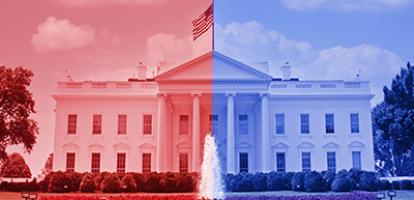From: Farah Omran and Jeremy M. Kronick
To: Prime Minister Justin Trudeau
Date: February 21, 2018
Re: Could the Eleventh Try Be the Charm for a Canada-India Trade Deal?
Eight years and 10 rounds after the formal launch of trade negotiations between Canada and India, an eleventh round is long overdue. Your trip to India this week has the potential to kickstart the stalled Canada-India Comprehensive Economic Partnership Agreement (CEPA) and a Foreign Investment Promotion and Protection Agreement (FIPA). Finalizing these talks, which have been in the works since 2004, would make Canada the second developed nation, after Japan, to achieve a free trade agreement with India – although we are by no means the only OECD economy with whom India is currently engaged in formal trade talks.
While we are optimistic, given that both countries have been outspoken about growing protectionism, there remain multiple regulatory and labour issues in the negotiation. Adding to the challenges is India’s newly imposed 50-per-cent tariff on yellow peas. While addressing these tariffs is important – our pulse exports to India totaled $1-billion in 2016 – it should not distract from the bigger picture.
In a world where protectionism is increasing and the state of trade uncertain, Canada should continue to press for trade deals that are beneficial to its economy. India provides such an opportunity. It consistently ranks as an attractive destination for trade given the size of the economy and the fact that it remains fairly closed. For example, a recent C.D. Howe study analyzing Canada’s competitive strengths in financial and related services, ranked India sixth overall as a desirable trade partner for Canada. With the financial sector having strong knock-on effects on complementary services, it should be a key starting point for negotiators. With that in mind, it’s important to review the progress India has made, and the potential sticking points that remain.
As a low-income economy, India is expected to be one of the fastest growing major markets in the world for the next two years. It remains, however, relatively restricted. According to the World Bank Services Trade Restrictiveness Index (STRI), India is consistently more restrictive than average in all sectors – and third most restrictive in financial services. These rankings, however, bring opportunities for Canada, which should continue to push India on this front.
We have seen some movement on these restrictions of late. Historically, FIPA talks had been stalled due to disputes over, notably, Indian concerns over mechanisms of settling disputes between the government and investors. India had withheld signing any new bilateral investment treaties (BIT) until finalizing its own new model BIT. With the New Model BIT now in place, which includes investor-state dispute settlement, Prime Minister Narendra Modi has signaled an opening up to foreign investors. Additionally, we have seen an easing of restrictions on foreign direct investment across several sectors, and the launch of the largest tax reform, making it easier for foreign firms to operate within India.
While these changes are welcome, labour issues have also derailed past talks. India ranks near the top when it comes to foreign countries with temporary workers in Canada. While international mobility is vital in today’s global economy, politically this can be a sensitive issue. One option to consider is putting quotas on temporary workers. At the same time, improving telecommunications and air transportation can work to increase the efficiency with which of Canadians and Indians can work together to compete in third markets.
The less enthusiastic tone surrounding the formal launch of a Canada-China trade negotiation late last year provides an additional incentive to focus minds on a large and growing Indian market. If Canada and India can solve the tensions currently affecting agricultural trade, they could and should make a big push toward that elusive finish line.
Farah Omran is a Junior Policy Analyst at the C.D. Howe Institute and Jeremy M. Kronick is a Senior Policy Analyst.
To send a comment or leave feedback, email us at blog@cdhowe.org.





